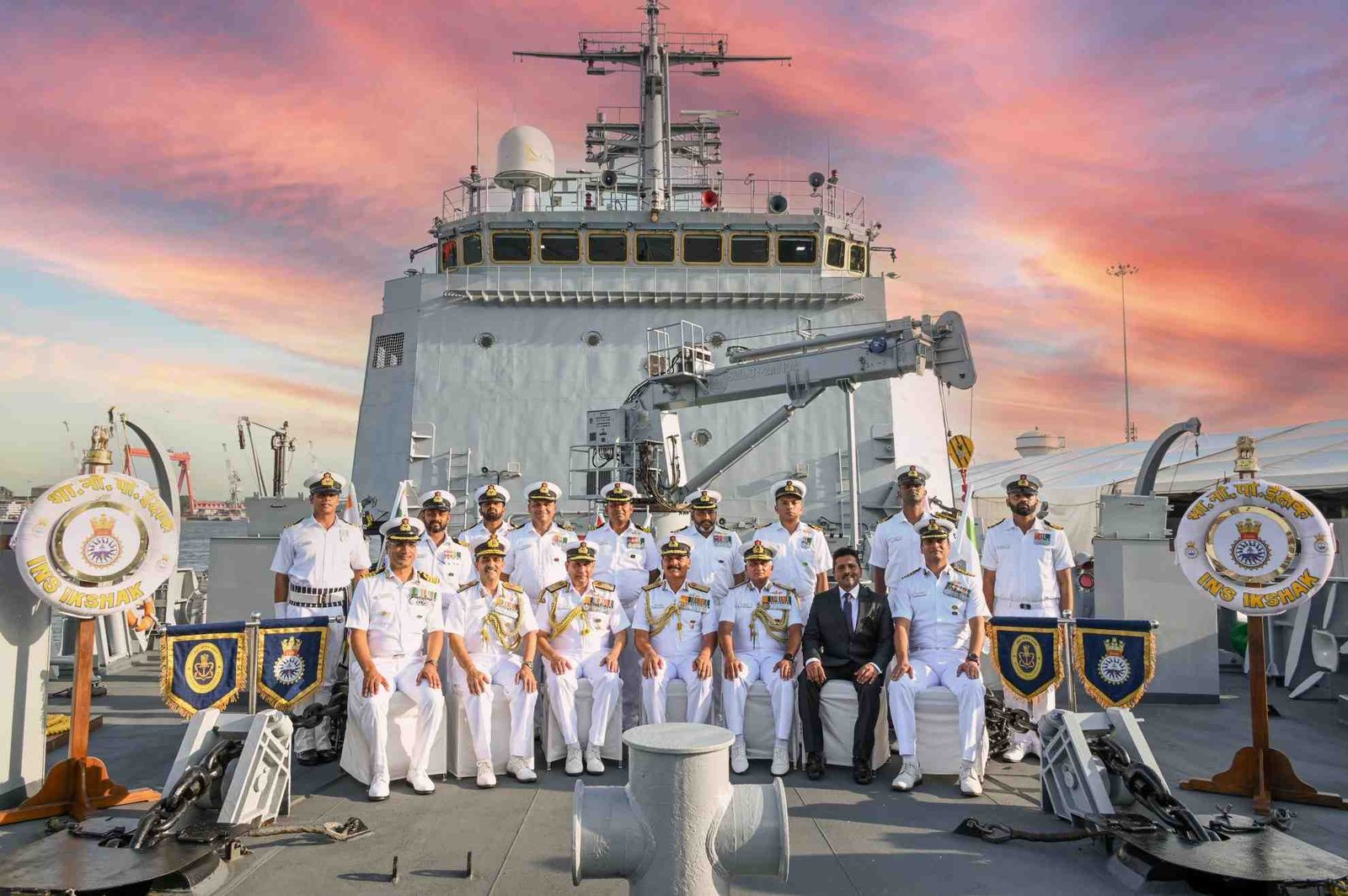News Summary · 4 minutes read

INS Ikshak was commissioned on 6 November 2025. Photo: DD News
Stay ahead in your UPSC CSE preparation with our daily News Summary. Designed to save time, it highlights key national and international events from leading newspapers and government websites.
Electoral nomination process in India
- Role of Returning Officer(RO)
- Under the Representation of the People Act (RPA), 1951, the RO has the power to scrutinise and accept or reject nomination papers.
- Section 36(2) empowers the RO to conduct a summary inquiry and reject nominations with defects of a substantial character → substantial defect is NOT defined, which gives the RO wide discretionary power.
- A rejection, lawful or arbitrary, cannot be challenged immediately, as Article 329(b) bars judicial intervention during elections.
- Constitutional and Legal Framework
- Article 329(b): prohibits courts from interfering in electoral processes before completion → disputes can be raised only through election petition after the elections.
- Representation of the People Act, 1951: establishes procedures for nomination, scrutiny, and withdrawal of candidature.
- Conduct of Elections Rules, 1961: implemented through the Election Commission and ROs.
- Reforms should aim to:
- Shift focus from bureaucratic filtration to democratic facilitation.
- Ensure procedural fairness, transparency, and accountability.
- Introduce digital-by-default systems to minimise human discretion and clerical disqualifications.
Right to vote vs freedom of voting
- Right to vote: a statutory right granted by the Representation of the People Act, 1951, and is subject to statutory limitations → also a constitutional right because Article 326 provides for adult suffrage.
- Note that it is NOT a fundamental right.
- Freedom of Voting
- The choice of whom to vote for, including the choice not to vote for any candidate.
- Part of the freedom of expression under Article 19(1)(a), as held by the Supreme Court in People’s Union for Civil Liberties (PUCL) vs. Union of India (2013) → recognized a voter’s right to register a “None of the Above” (NOTA) choice and directed the Election Commission to provide a NOTA button in EVMs.
- This freedom arises only when a poll is actually conducted → In uncontested elections (where the number of candidates equals the number of seats), the freedom of voting does not arise.
Article 22 (1) of Indian Constitution
- Says that “no person who is arrested shall be detained in custody without being informed, as soon as may be, of the grounds for such arrest.”
- Recently, the Supreme Court ruled that:
- Arrested persons must be provided with the reasons for their arrest in writing in a language they understand, regardless of the type of offence or law involved.
- The grounds for arrest must be provided at least 2 hours before the accused is brought before a magistrate.
- Communication of the grounds in a language not understood by the person arrested does not fulfil the Constitutional mandate under Article 22.
- In case of non-compliance, the arrest and subsequent remand would be rendered illegal and the person would be set free.
- 3rd vessel of the Survey Vessel Large (SVL) class → commissioned into the Indian Navy at Naval Base in Kochi on 6 November 2025.
- Built by Garden Reach Shipbuilders & Engineers (GRSE).
- Strengthens India’s hydrographic survey and maritime operational capabilities → also capable of operating as a platform for humanitarian assistance, disaster relief and medical support operations.
- First SVL designed with dedicated women’s accommodation.
CAG grants approval for creating two new cadres
- They will be created within the Indian Audit and Accounts Department and will be named as:
- Central Revenue Audit (CRA) Cadre
- Central Expenditure Audit (CEA) Cadre
- Will come into effect from 1st January 2026.
- Officers in both cadres will be liable for all-India transfers.
- Benefit: deeper domain expertise in revenue and expenditure audits.
- At present, the audit of Central receipts and expenditure is undertaken by multiple offices with cadre control dispersed across multiple State Civil Audit offices leading to fragmentation.
Nuclear arms race
- Recently, U.S. President Donald Trump stated that the U.S. would begin testing nuclear weapons, claiming that many other nations are conducting similar tests.
- Partial Test Ban Treaty (PTBT, 1963): banned all nuclear test detonations in the atmosphere, outer space and underwater → since then, most tests have been conducted underground.
- Comprehensive Test Ban Treaty (CTBT, 1996): banned all nuclear tests.
- Never came into force as the required number of countries did not ratify it.
- USA and China have signed the treaty but never ratified it.
- Russia had signed and ratified it, but in 2023, amid mounting tensions with the U.S., it decided to de-ratify it.
- India has signed and ratified the PTBT, but NOT signed the CTBT.
- Russia has the world’s largest inventory of nuclear warheads, followed by the US.
- Historically, the U.S. has carried out the most number of nuclear tests followed by the Soviet Union and France.
Quick Picks
- Myawaddy: a town in Myanmar, close to the border with Thailand → in news for scam centres.
- Typhoon Kalmaegi: originated in the Philippine Sea → made 1st landfall in the Philippines, re-intensified over the South China Sea before making landfall in Vietnam, and weakened into a tropical storm and passed over north-eastern Cambodia and Southern Laos and into Thailand on 7 November → Philippines declared a state of national calamity.
- Abraham Accords: series of agreements, mediated by the US, signed in 2020 to normalize diplomatic relations between Israel and several Arab states → UAE, Bahrain, Sudan, and Morocco have already signed it, and Kazakhstan is set to sign it.
Practice: Daily Current Affairs Quiz ↗️
Read: News Summary ↗️
Subscribe: Telegram Channel ↗️
Join: Telegram Group ↗️
